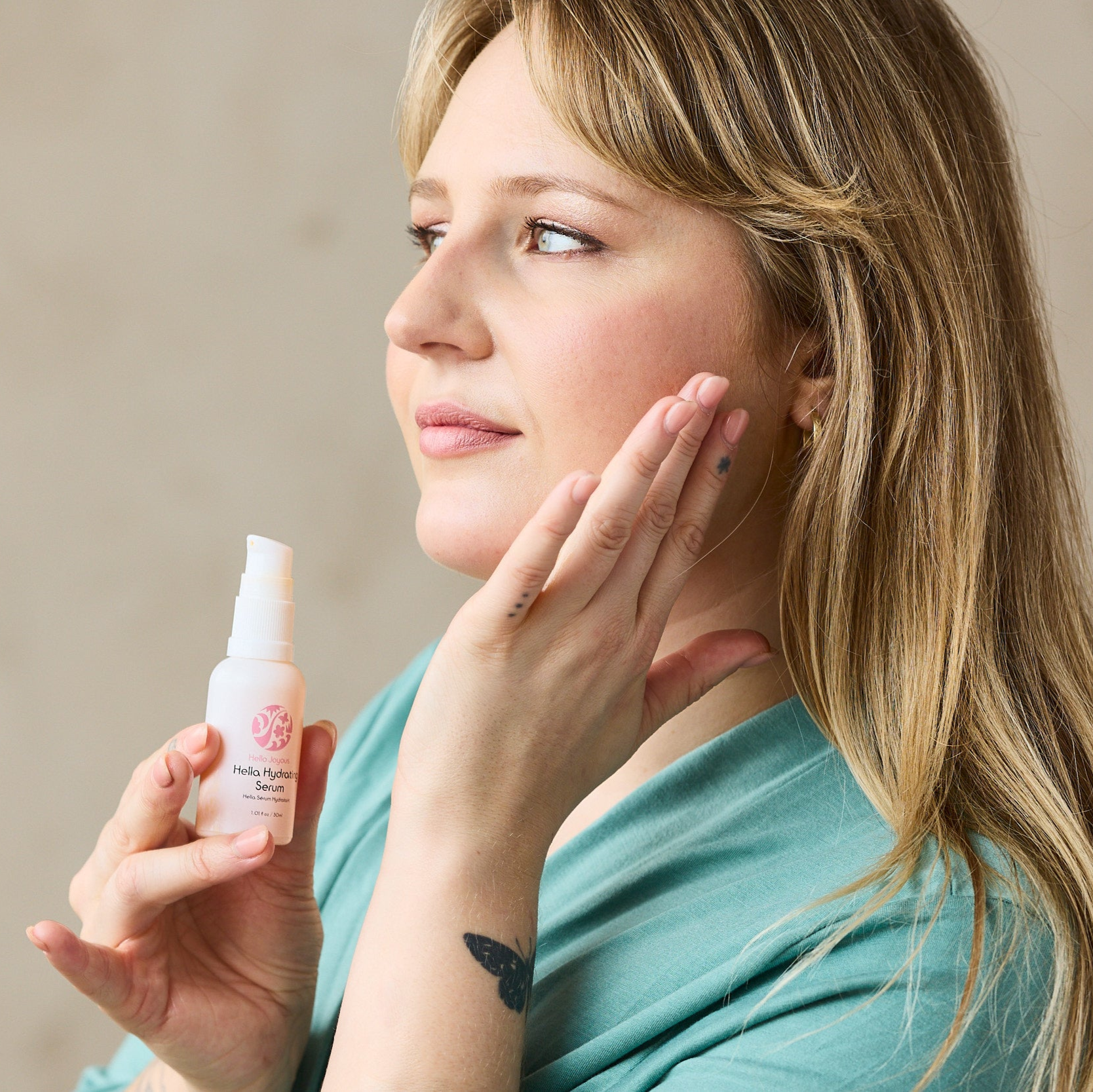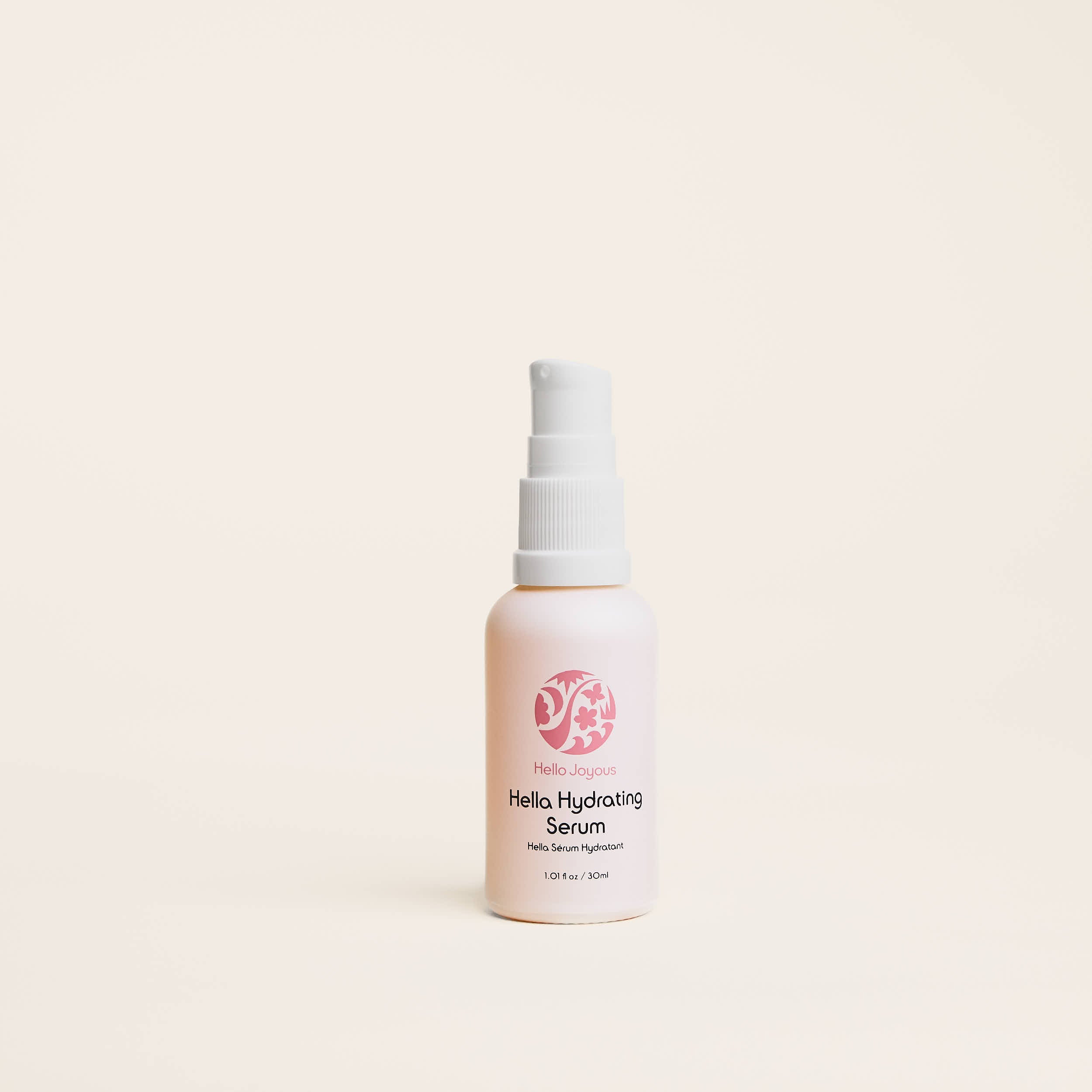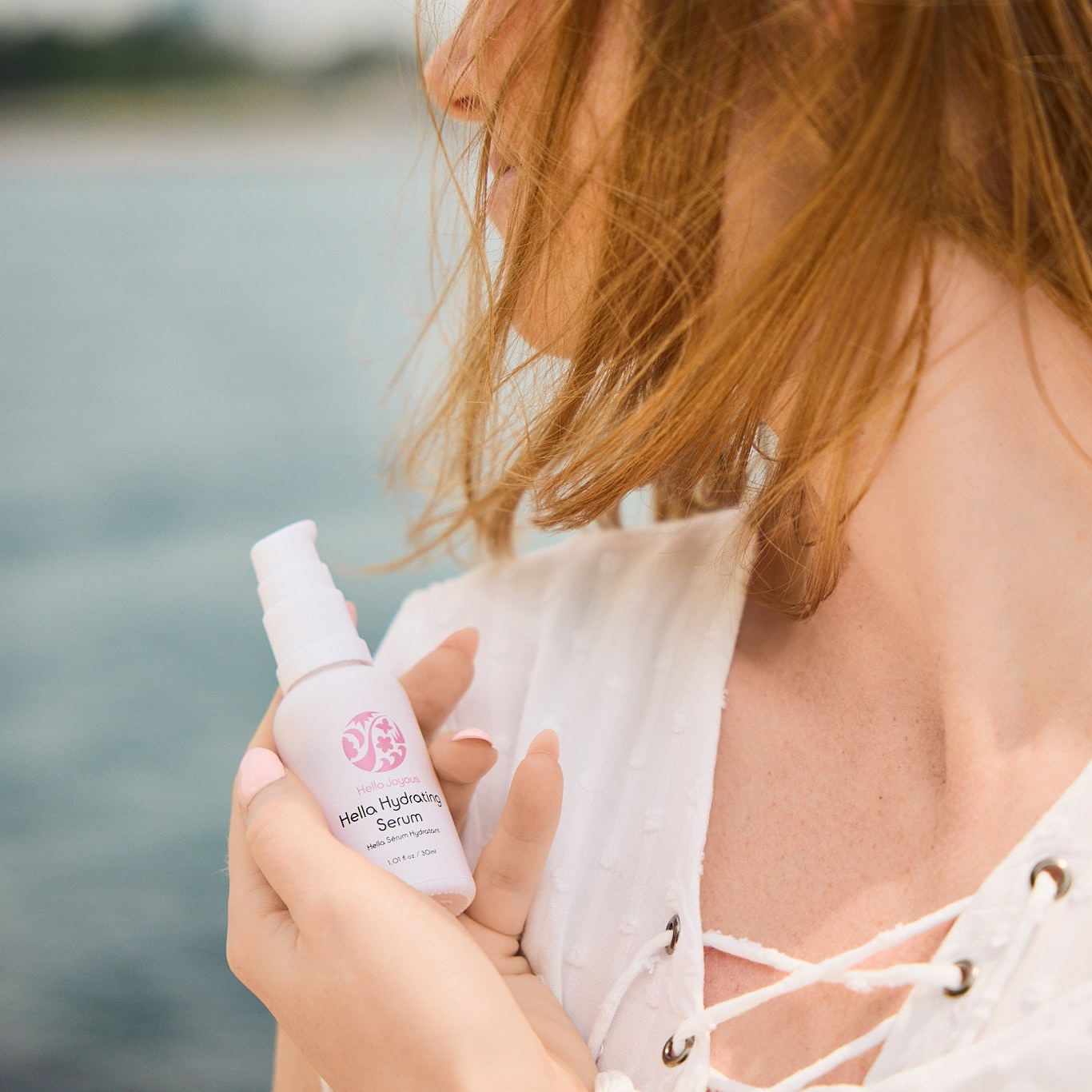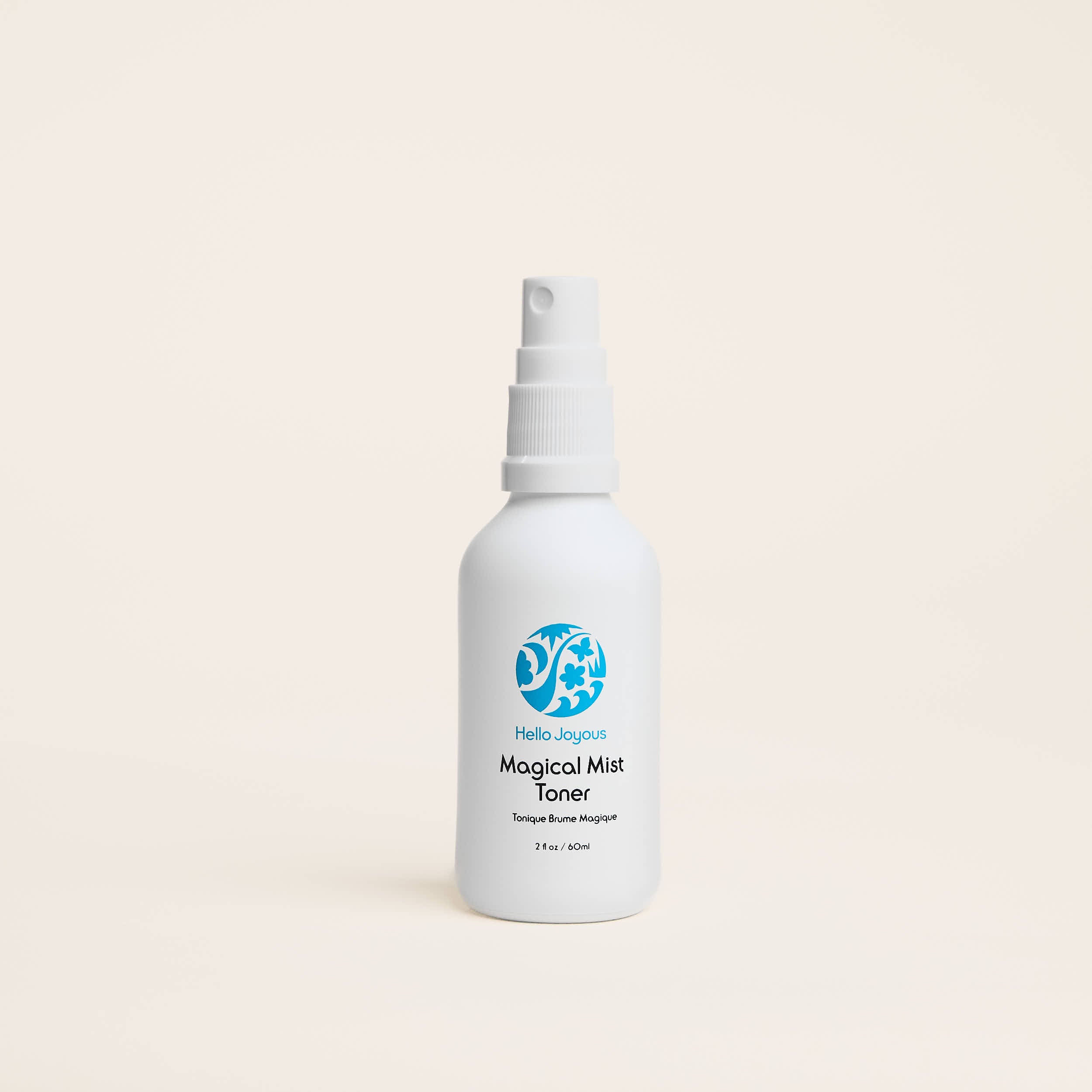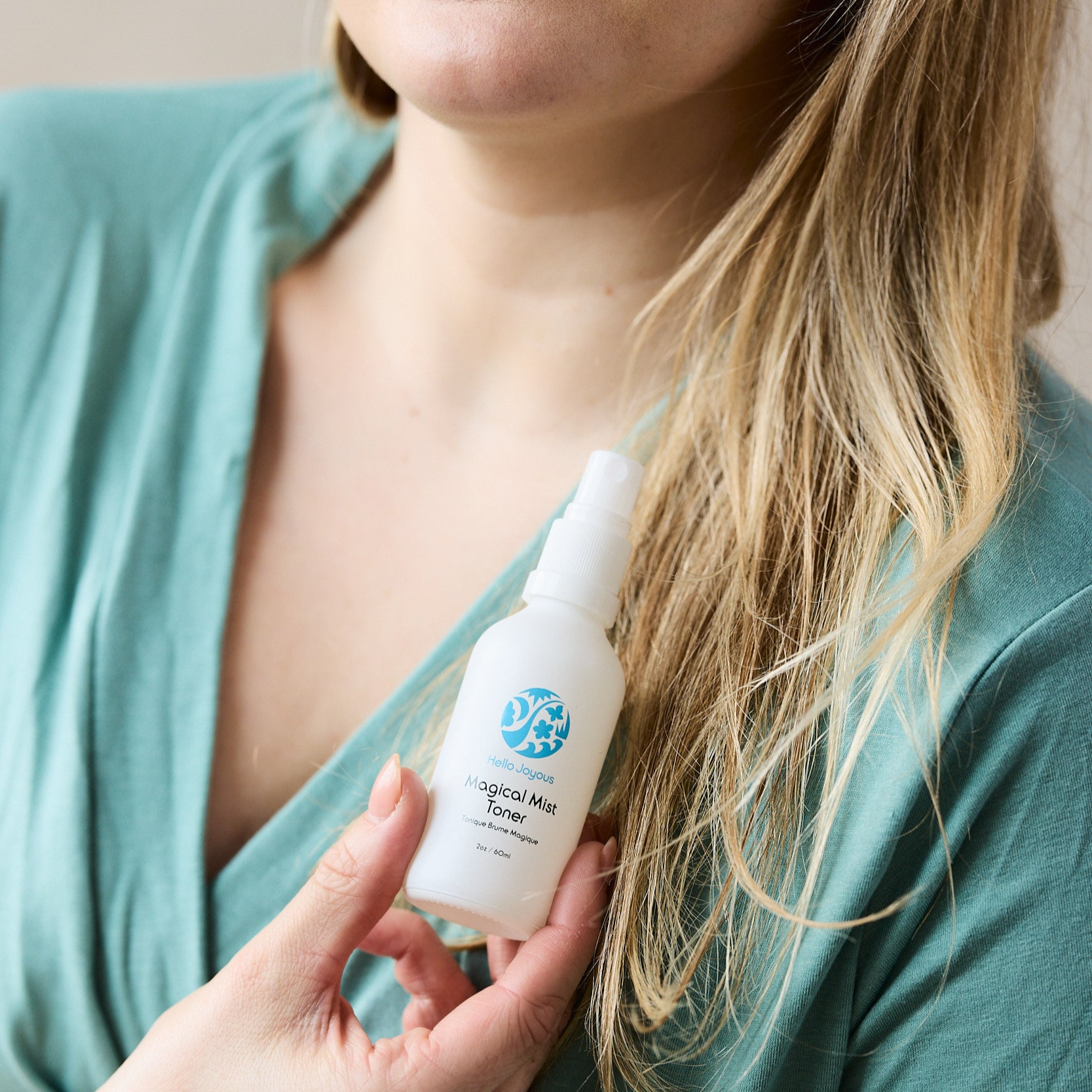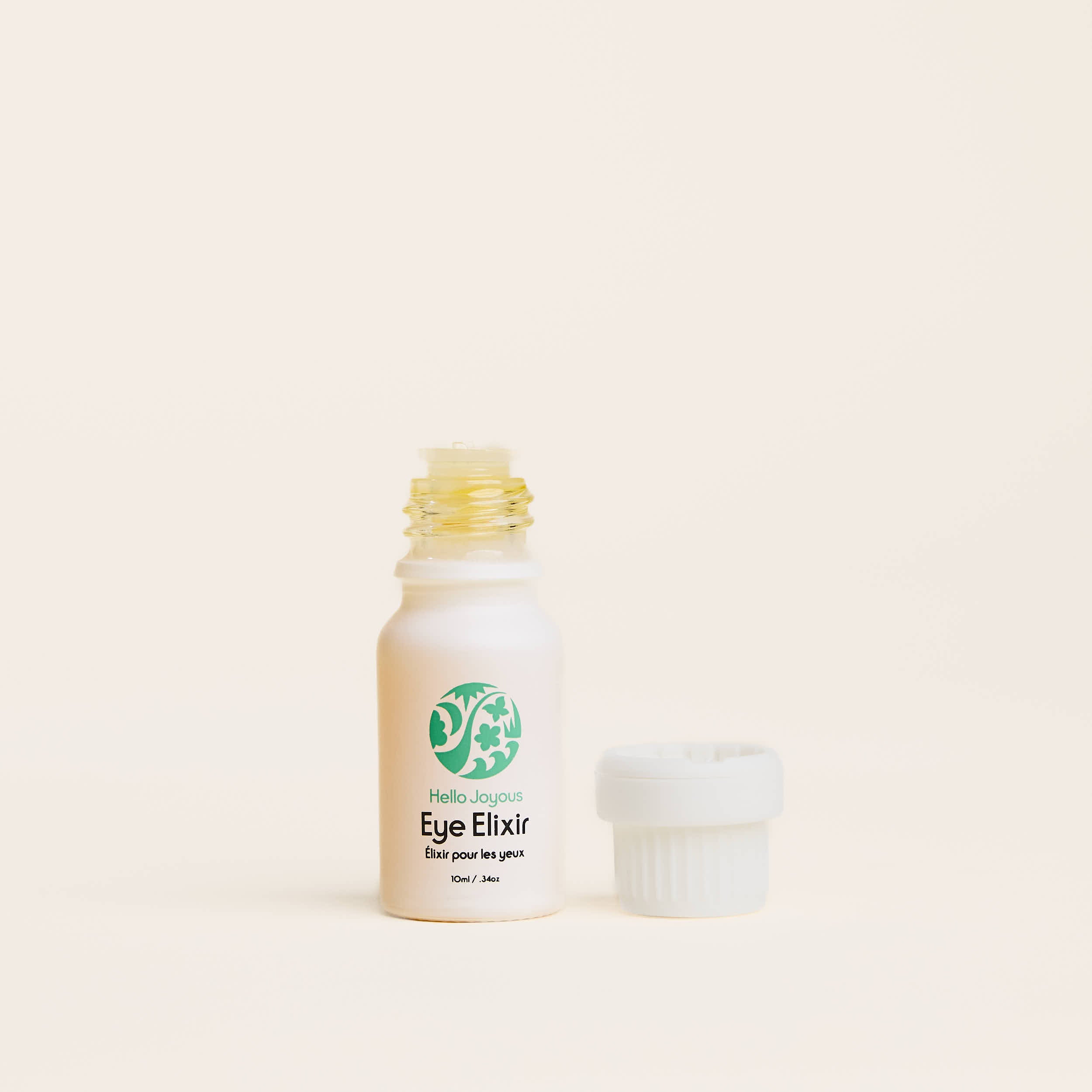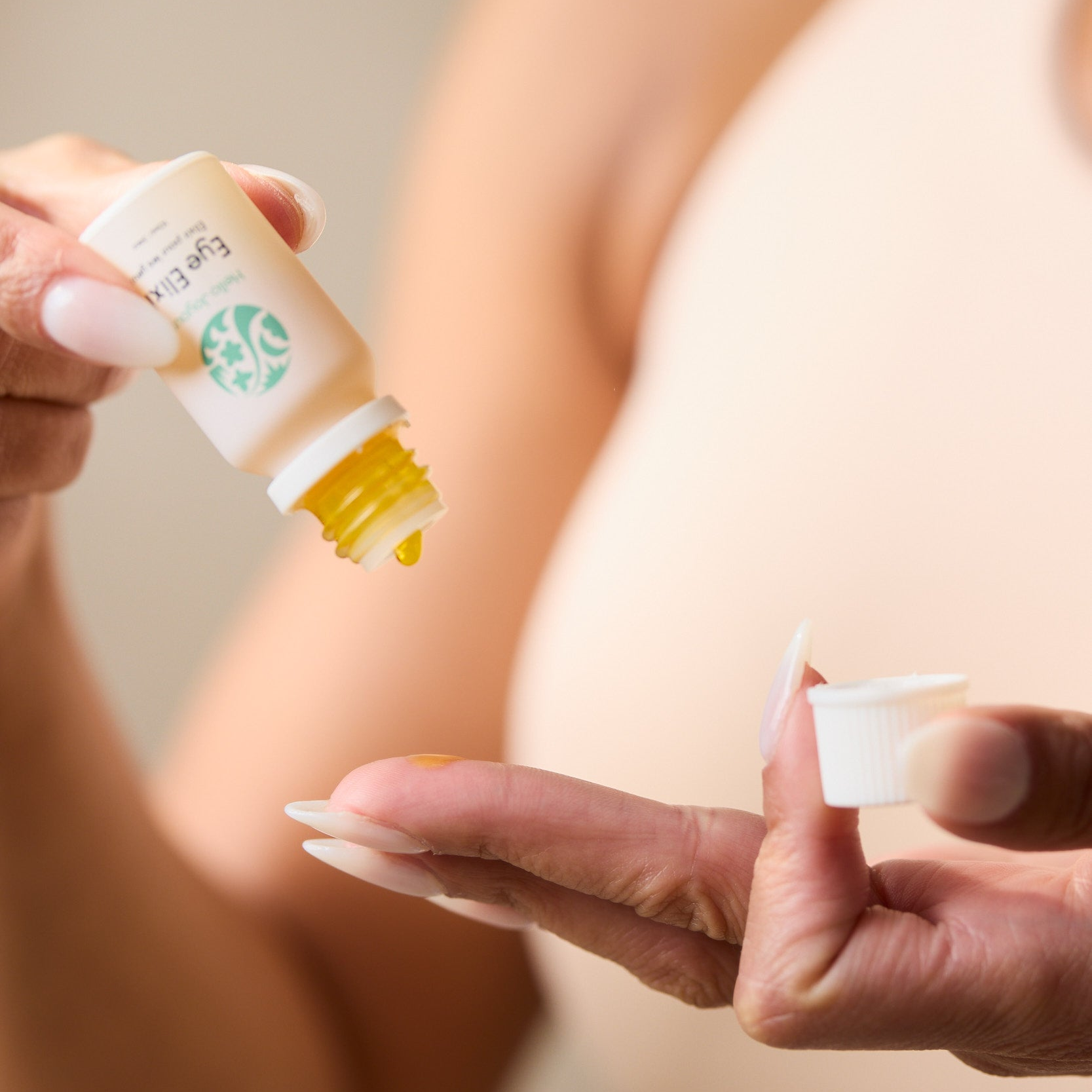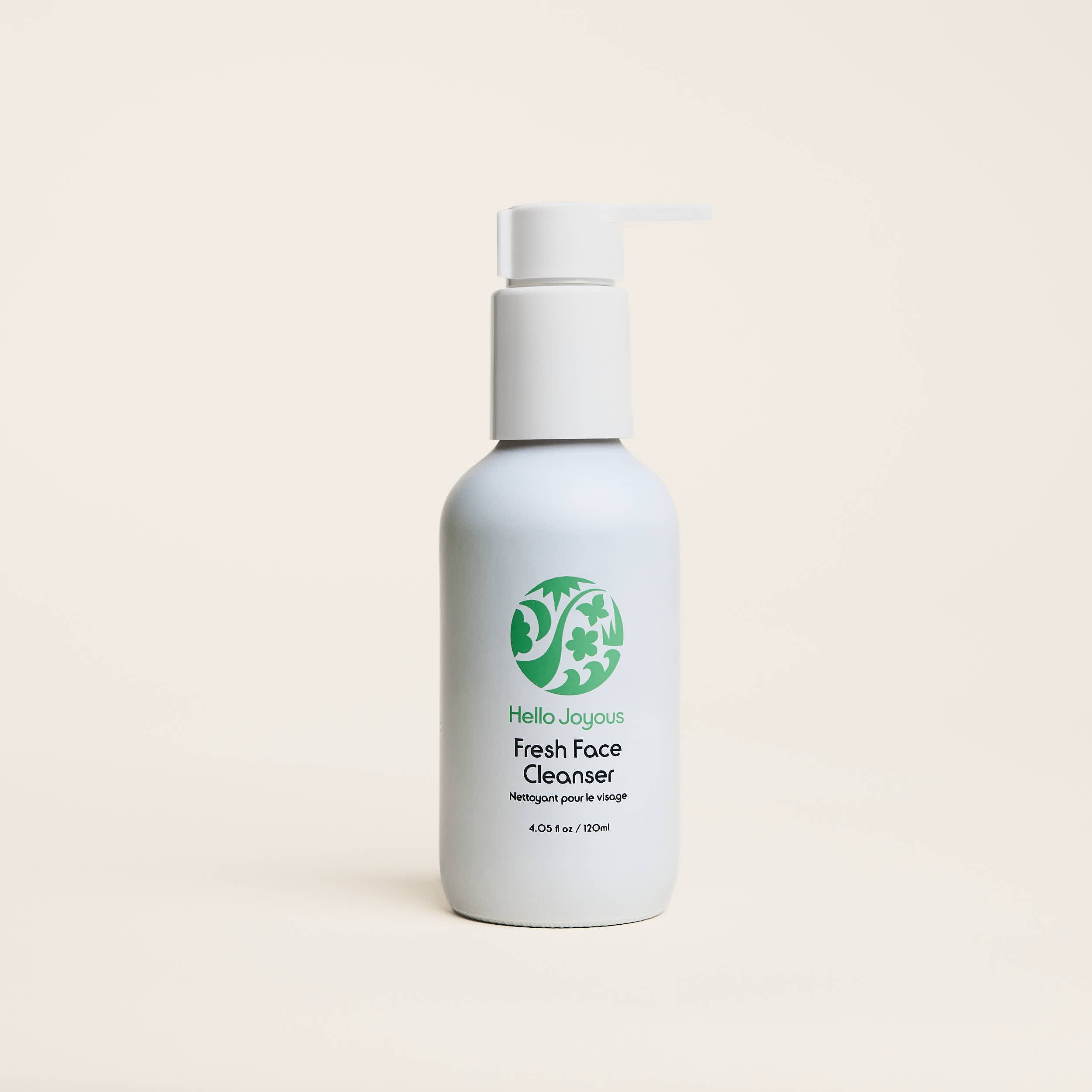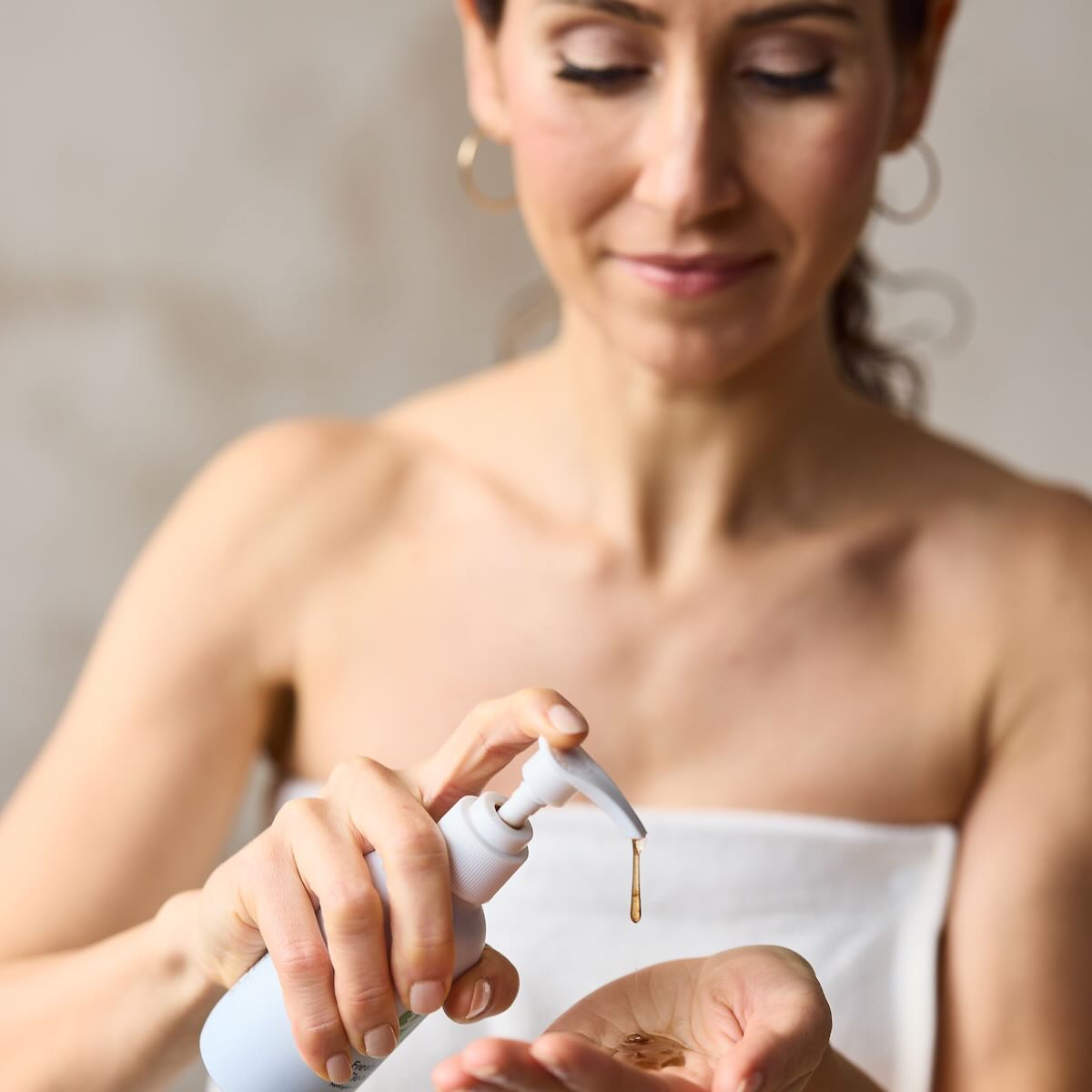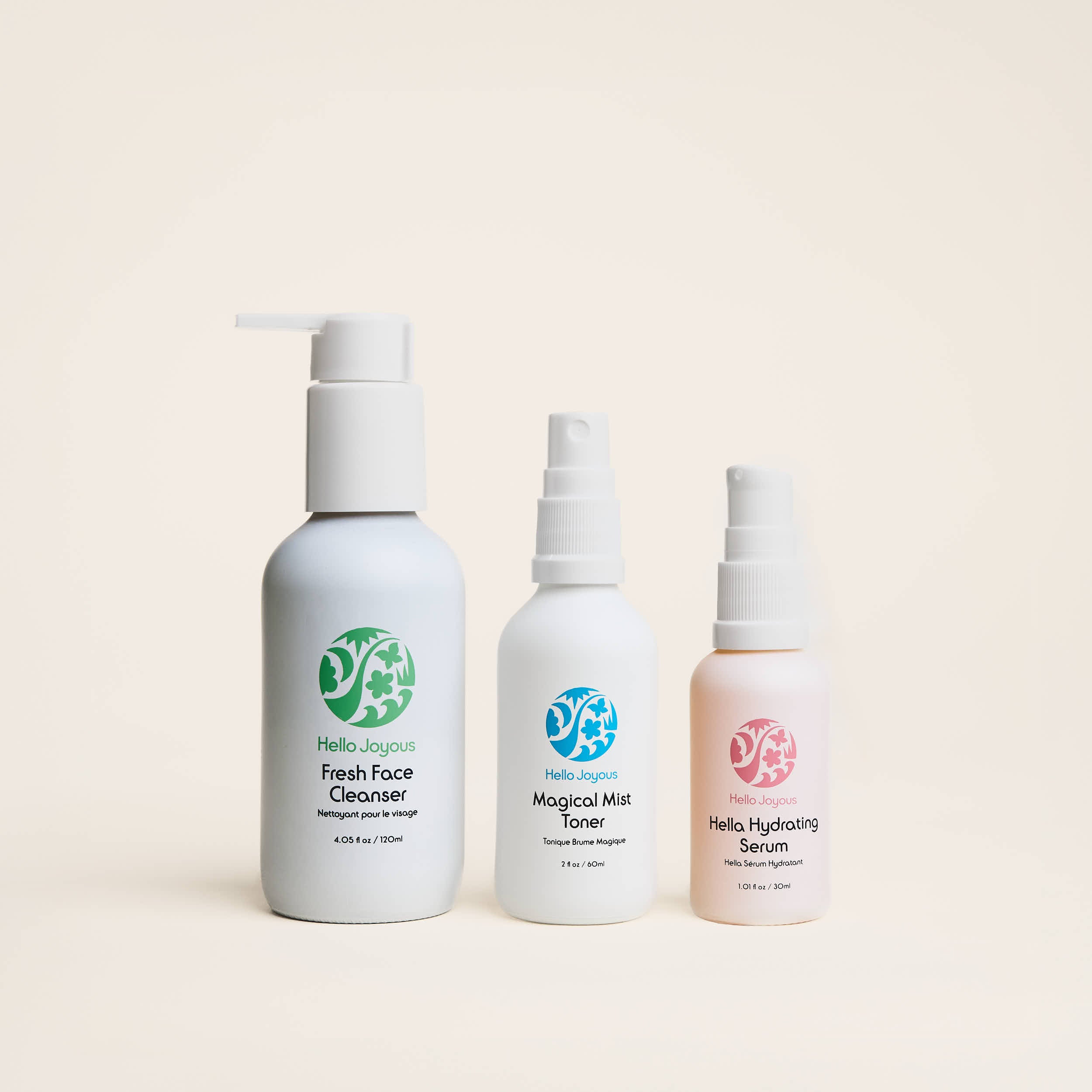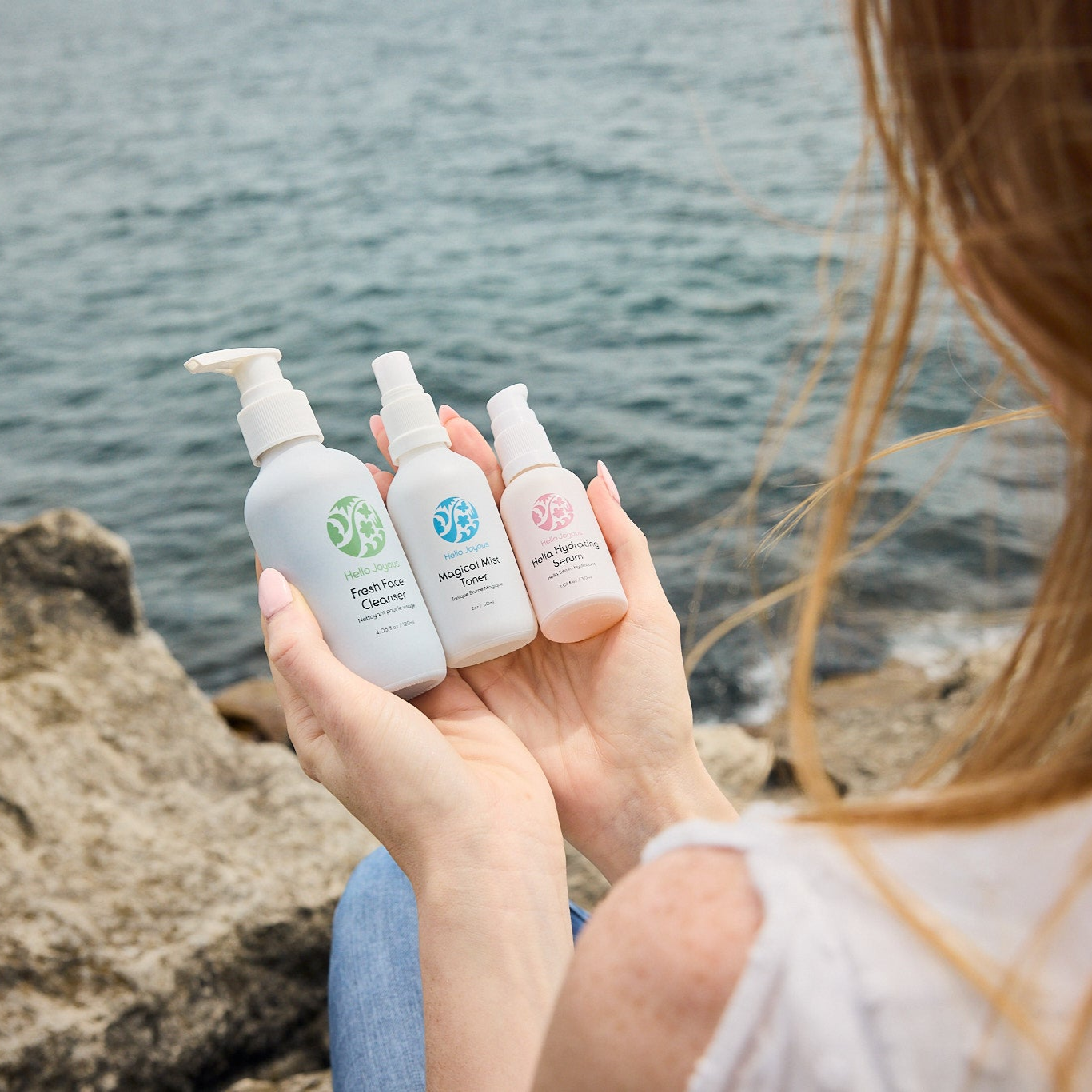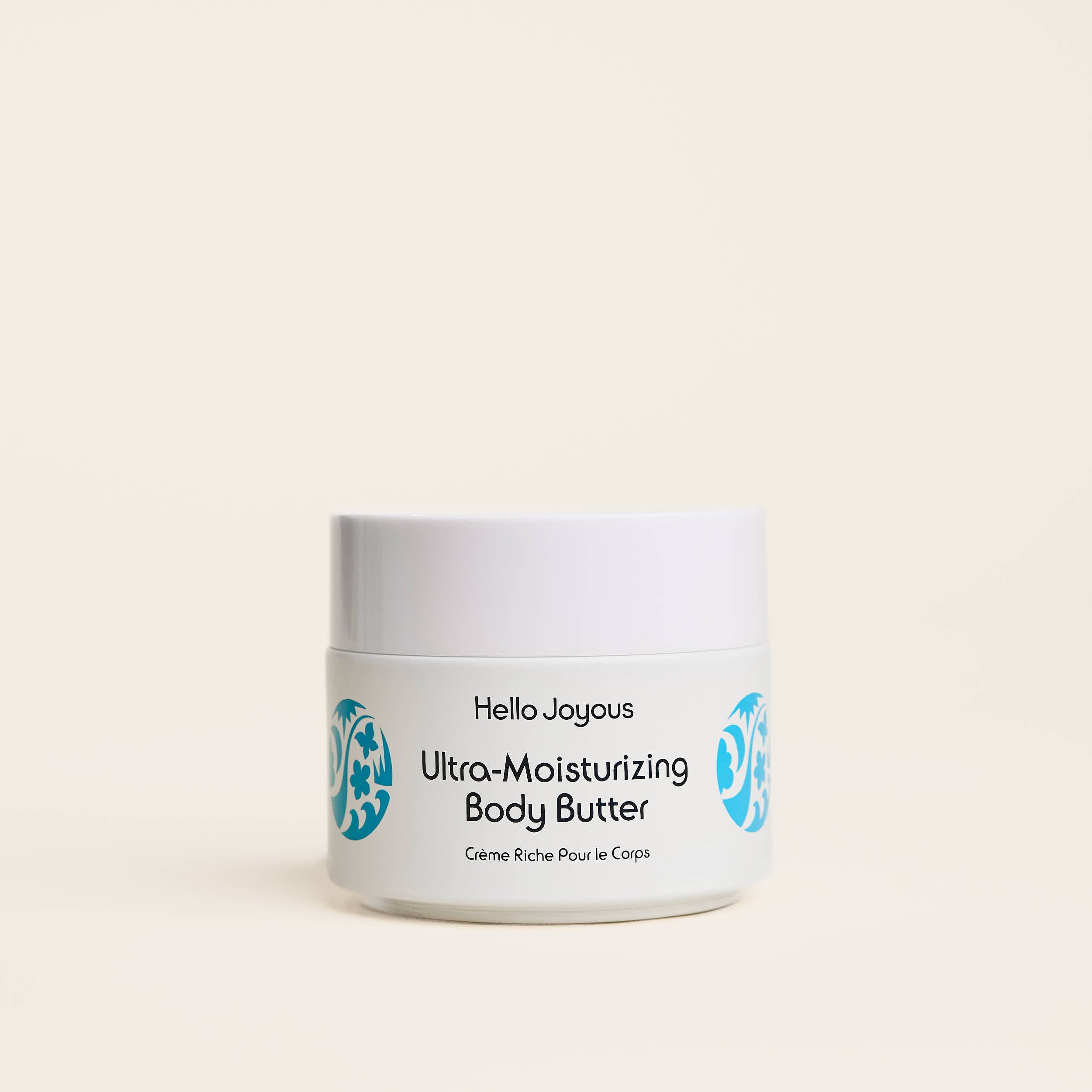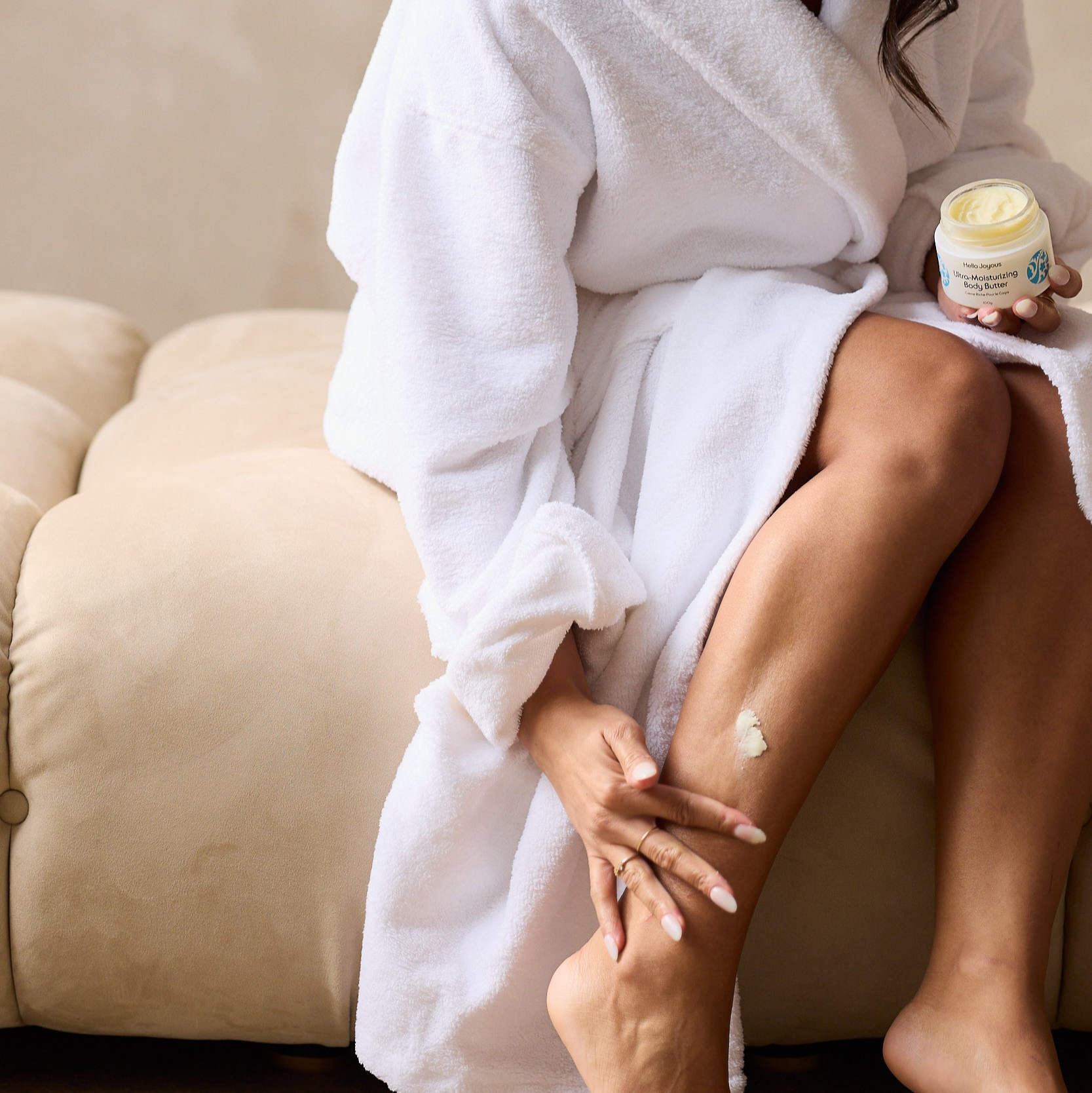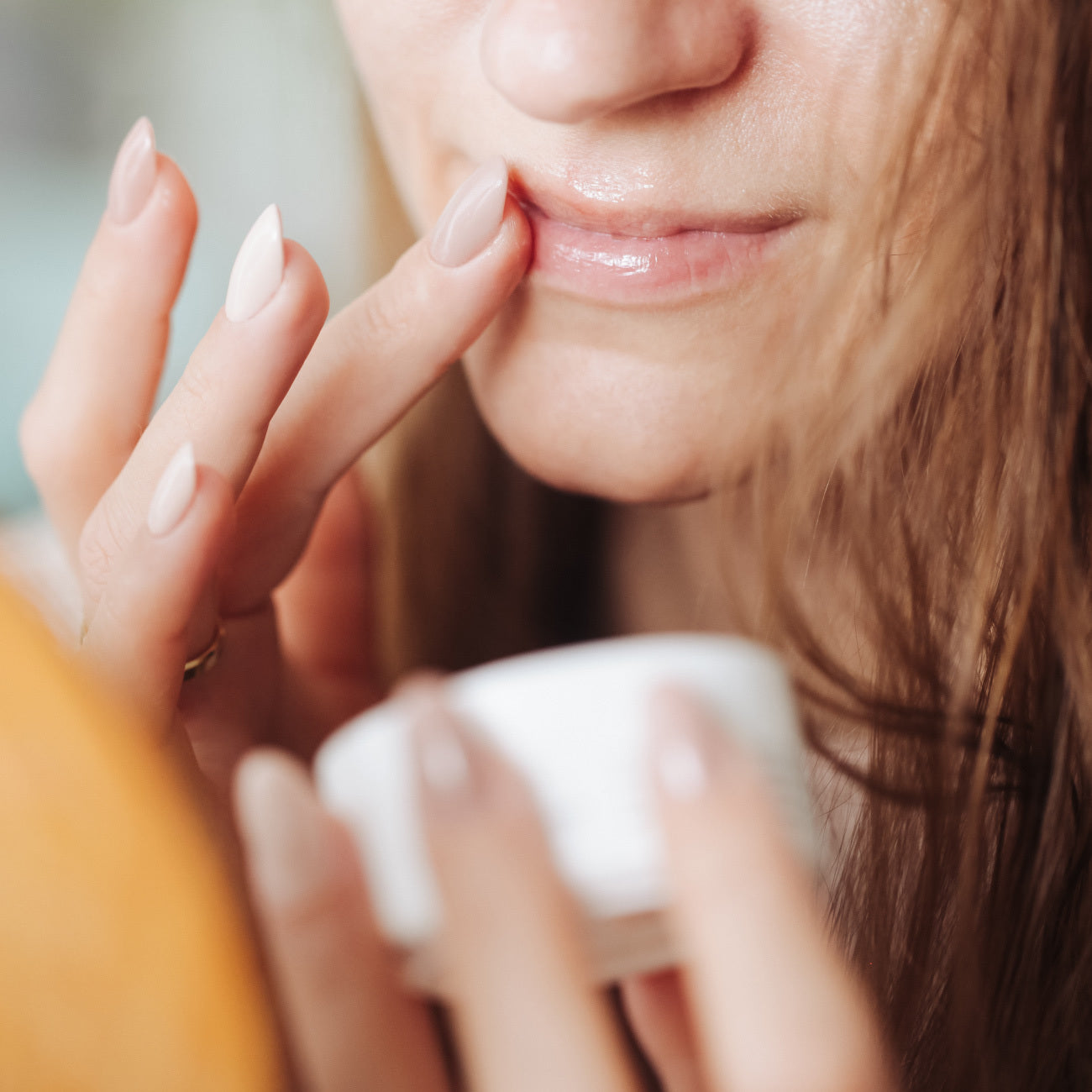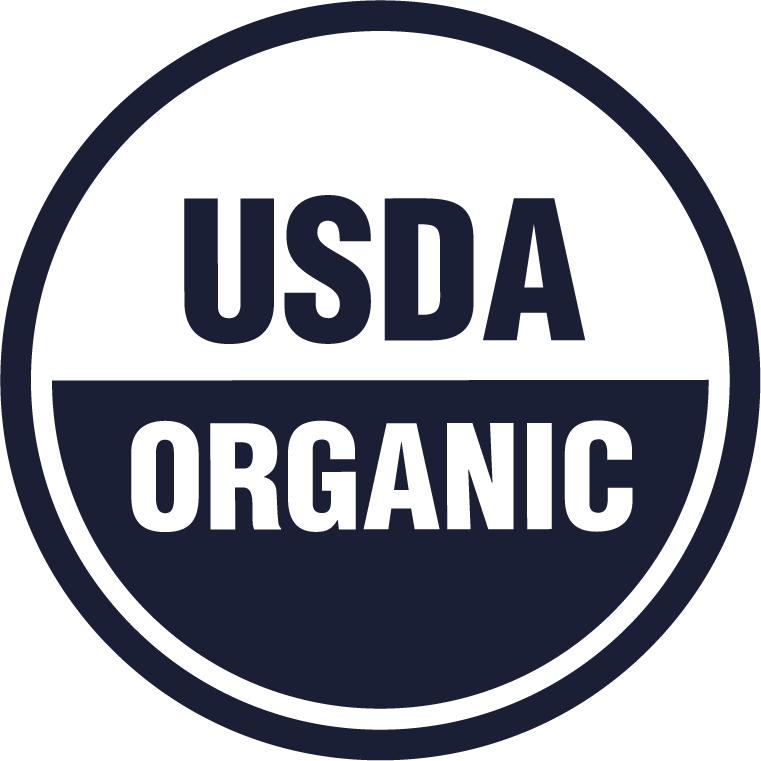Part of our mission at Hello Joyous is to educate and empower our incredible community to make the skincare decisions that best suit their needs. Our blog has become the go-to resource for clean beauty junkies to stay up-to-date on the best ingredients to support glowing skin (peep these articles about organic golden jojoba oil, hyaluronic acid, and organic cold-press rosehip oil!). However, clean beauty products are defined by more than what they contain–what they leave out is just as important!
We’ve written extensively about the 10 ingredients in beauty products you’ll want to avoid, done deep dives into why you should ditch phthalates and formaldehyde-releasing preservatives, and highlighted why you should smell the flowers and not the artificial fragrances.
Today we’re continuing our series with a closer look at everything you need to know about petroleum-based ingredients, including what they are, how they are used in skincare, why to avoid them, and what to look for on labels.
What are petroleum-based ingredients?
Petroleum-based ingredients, specifically petroleum jelly have been a staple recommendation by doctors for moisturizing and protecting skin since the late 19th century. Fun (or gross?) fact: Back in the 1870s oil workers used to slather an unrefined petroleum product, called “rod wax” on their bodies to help heal burnt or wounded skin. A chemist named Robert Chesebrough decided to refine the gel that was found on the walls of oil wells to create petrolatum.
You’ll find petroleum-based ingredients in everything, from shampoos to moisturizers, but that doesn’t necessarily mean they are the most healing ingredient for your skin. One of the reasons we are so passionate about keeping the ingredients in our Hello Joyous skincare line pure and organic is because The American Journal of Public health found that the skin can absorb between 64% and 100% of the chemicals in your skincare product. The amount that gets absorbed depends on several factors including: the size of the molecule, whether you have any broken skin, or if your skin barrier function or skin microbiome is compromised due to conditions like eczema, acne, or rosacea.
These ingredients are refined from crude oil, which is not only a non-renewable resource, but isn’t the best choice to apply to your skin because it has occlusive properties. This means that it creates a non-permeable layer over your skin, which we’ll discuss in more detail below. You can find petroleum-based ingredients in many beauty products because they are cheap and easy to source. However, slathering your skin in petrochemical byproducts isn’t necessarily the best way to get a gorgeous glow, especially when there are many healthier and more sustainable options, like this organic blend of gorgeous plant butters!
How are petroleum-based ingredients used in beauty products?

Since petroleum-based ingredients are so cheap and readily available, they are very attractive to large manufacturers, making them a common ingredient in beauty products ranging from anti-aging creams to moisturizers to shampoos, conditioners, lip balms, and makeup. You’ll even find them in supposedly high end brands. These companies love them because they believe they’re a cheaper way to moisturize and hydrate the skin, but unfortunately for the consumer they don’t do either of these things.
What they actually do is create a waterproof, or occlusive, barrier on the skin that doesn’t let it breathe and can possibly trap impurities. Some people find these ingredients cause breakouts, especially if they’re prone to acne, as it suffocates the skin and clogs the pores in addition to impacting the skin microbiome. While petrolatum does lock in moisture, it doesn’t allow the skin to absorb moisture from the environment, which makes it less hydrating than products that use emollients (soothers and softeners), such as cocoa and shea butters or organic cold-pressed rosehip oil + hyaluronic acid.
Another common use of petroleum jelly or other similar products is as a moisturizer for ultra delicate infant skin, especially in products for babies with eczema. However, products made with petroleum-based ingredients can cause irritation, clog pores, and even suffocate the skin. In fact, a study published in Pediatrics found that using topical petrolatum on low birth weight infants increased their risk of developing systemic candidiasis, possibly by creating a warm, damp environment for the yeast to flourish. Using these petroleum-based products on delicate baby skin is totally unnecessary since there are so many amazing natural alternatives like our super gentle Body Butter!
It’s important to remember that even high end products or brands that claim to be natural may still use petroleum-based ingredients simply because they are cheaper to source and create a higher profit margin. Make sure to read your labels, especially if you have sensitive or acne prone skin, so that you can avoid them.
How to read labels
Knowledge is power and learning different names for petroleum-based ingredients can help you purchase products that are healthy for you and the planet. The following is a list of the most common names you’ll likely see on labels:
- Propyl-containing words
- Petrolatum
- Mineral oil
- Petroleum jelly
- Paraffin (paraffin wax)
- Toluene
- Benzene
- DEA (diethanolamine)
- PEG (polyethylene glycol)
- MEA (ethanolamine)
- EDTA (ethylenediaminetetraacetic acid)
- Butanol and anything with “butyl” in the name
- Phthalates
- Parfum or fragrance
- Methanol
- Parabens

By becoming a savvy shopper and taking a few moments to check your labels you’ll be able to see whether your favourite beauty brands are as clean and safe as they claim or if they are taking shortcuts and using petrochemicals. Luckily, as consumers become more educated and aware of the health effects of these ingredients, more companies are starting to formulate products that are pure, natural, and highly effective.
Why you should avoid petroleum-based ingredients
Rather than being the beauty booster TikTok might lead you to believe they are, petroleum-based ingredients can leave you with a less than stellar glow. The David Suzuki Foundation lists petrolatum as one of its Dirty Dozen Cosmetic Chemicals to Avoid because it can be contaminated with polycyclic aromatic hydrocarbons (PAHs). Researchers have found a correlation between exposure to these substances, including skin contact, and various types of cancers, including bladder, lung, and skin. In fact, the European Union classifies petrolatum as a carcinogen and restricts how it can be used in cosmetics.
In addition to PAHs, petroleum-based ingredients can negatively impact your skin health and seriously dull your glow from head-to-toe. These chemicals:
- Can suffocate the skin & harm the skin microbiome
- May cause irritation or redness
- Can clog pores and lead to breakouts
- Can be contaminated with dioxanes (cancer causing substances)
Another one of our ingredients to avoid, phthalates, are also derived from petroleum-based ingredients. We shared a deeper look into why this ingredient should never be in your products here, but the short version includes hormonal disruption in men and women including early puberty development in young girls and lowered sperm counts in men.
With so many proven natural ingredients that can protect, nourish, and soothe the skin, there’s no need to rely on beauty products that are loaded with petroleum-based ingredients. Just say no to petrochemicals–your skin will thank you!
Skin-loving clean beauty alternatives
Our promise to our customers is complete transparency in labeling, which we feel confident doing because all of our formulas are made with organic plant-botanicals and extracts, in their purest forms. We believe that the best way to support your skin barrier function, the health of your skin microbiome, to balance your pH, and nourish your skin is to turn to the magic of nature.
Some of our best-selling, skin-loving products include:
- Fresh Face Cleanser: balance your oil production for ultra-soothed and hydrated skin with the magic of organic comfrey root and golden jojoba oil!
- Magical Mist Toner: balance your skin’s pH with this alcohol free toner loaded with nourishing plant botanicals like rose geranium for all skin types.
- Hella Hydrating Serum: lock in moisture, while letting your skin breathe with this two-ingredient serum–organic cold-pressed rosehip oil + hyaluronic acid!
- Ultra-Moisturizing Body Butter: avoid petrolatum and use emollients like organic shea, cocoa, and mango butters + skin-loving extracts like Canadian source chaga designed to penetrate and nourish your skin.
We hope this post has empowered you with the knowledge to make the best choices for your skin health when it comes to petroleum-based ingredients in beauty products. Luckily, there are tons of amazing plant-powered ingredients that can nourish and protect your skin naturally, so you can ditch the chemicals in favour of real clean beauty boosters!
Read more

We’re passionate about all things skincare. Whether that’s providing tips on how to balance your skin’s pH, care for perimenopausal skin, or support your skin’s delicate barrier and microbiome, we ...
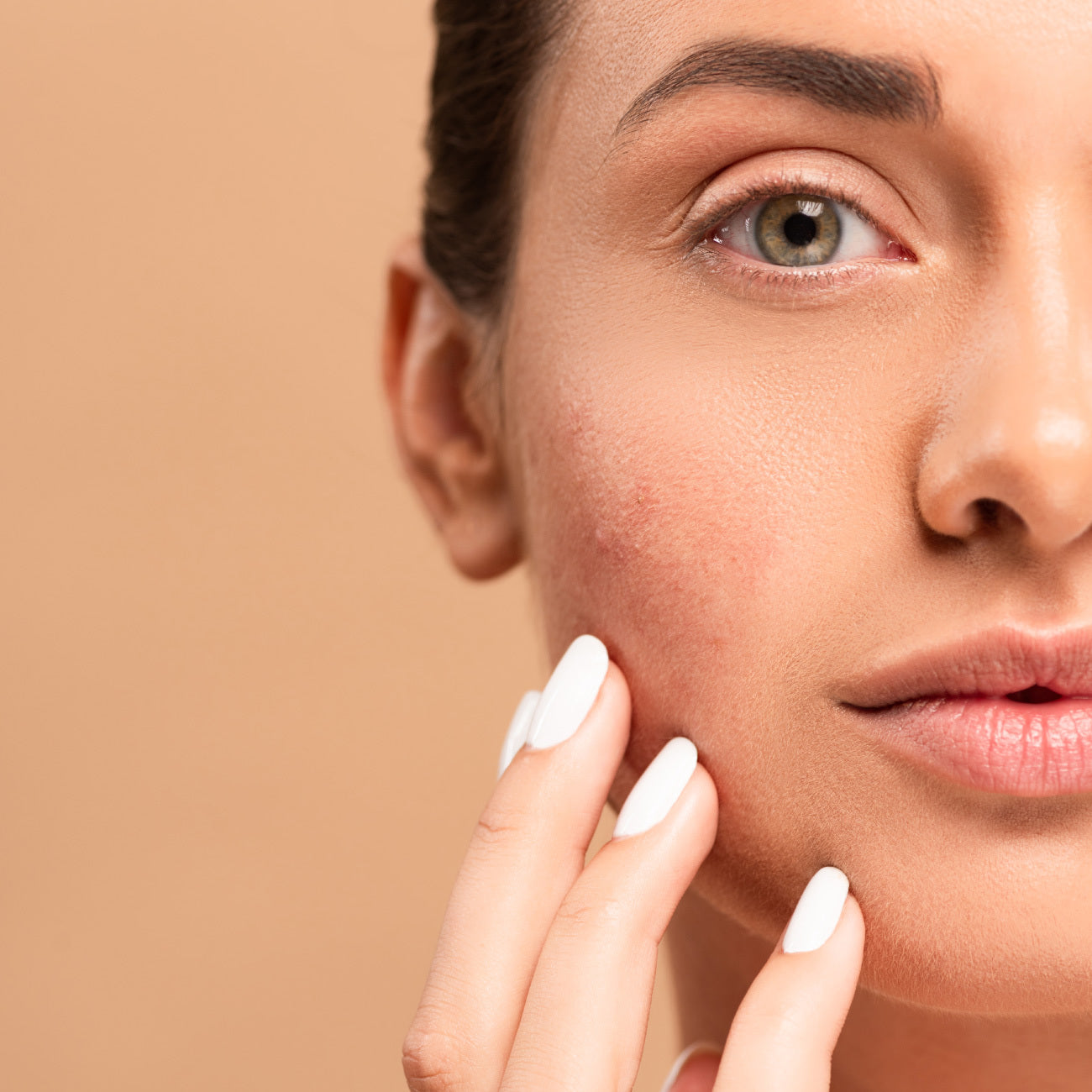
When it comes to skincare, many people often describe their skin as "sensitive." However, there's a crucial distinction between having naturally sensitive skin and experiencing sensitized skin. Und...
